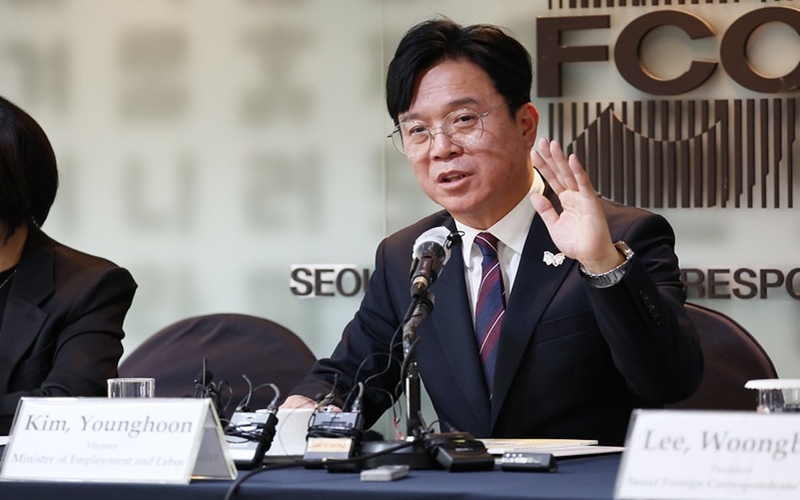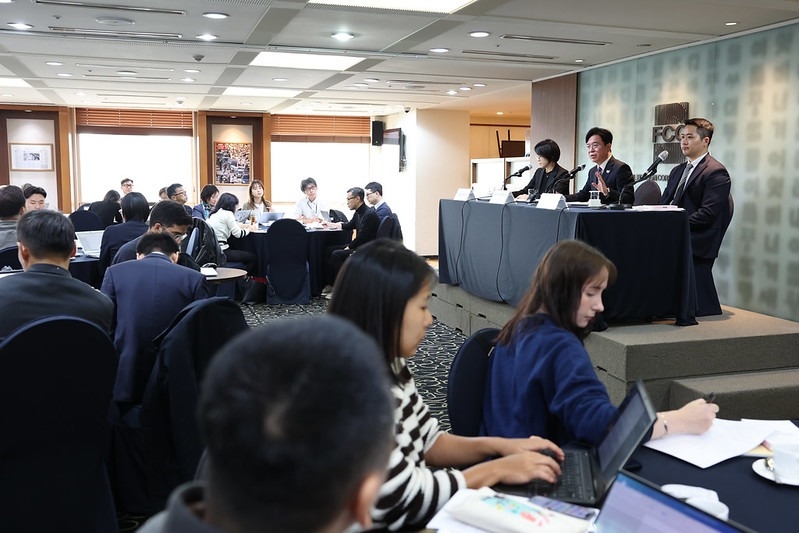- 한국어
- English
- 日本語
- 中文
- العربية
- Español
- Français
- Deutsch
- Pусский
- Tiếng Việt
- Indonesian
By Honorary Reporter Mathilde Lafage from France
Photos= Korea.net's Flickr account
The Seoul Foreign Correspondents' Club on Oct. 20 hosted a Coffee Briefing with Minister of Employment and Labor Kim Young Hoon. Following recent developments in Korean labor law, global media invited him to speak on such changes.
On Aug. 24, the National Assembly passed the Yellow Envelope Act, an amendment to the Trade Union and Labor Relations Adjustment Act that allows unions to strike over workplace conditions affected by corporate restructuring and protects laborers and unions from excessive financial liability for damage sustained during a work stoppage.
The revision is named after the 2014 movement in which Koreans sent yellow envelopes with cash to support striking workers facing financial liability for walking off the job.
The move ignited strong opposition from corporations and pro-business federations including the Korea Chamber of Commerce and Industry, Federation of Korean Industries and Korea Federation of SMEs. It was passed, however, through the legislature through a 183-3 vote.

Minister of Labor and Employment Kim Young Hoon on Oct. 20 speaks at a Coffee Briefing with the Seoul Foreign Correspondents Club at the Korea Press Center in Seoul's Jung-gu District.
Some of the questions were about international students in the country, who often face major barriers even before entering the workforce. Many come to Korea to study the language through scholarships but find it difficult to find jobs after graduation, partly because of inadequate proficiency in Korean.
Minister Kim acknowledged the existence of illegal practices because of these issues. He also mentioned a forthcoming training program for such students with a language or art background to facilitate their integration into the Korean labor market while reflecting their interest in Korean culture.

Foreign journalists on Oct. 20 listen to Minister of Labor and Employment Kim Young Hoon at a Coffee Briefing hosted by the Seoul Foreign Correspondents' Club at the Korea Press Center in Seoul's Jung-gu District.
msjeon22@korea.kr
*This article is written by a Korea.net Honorary Reporter. Our group of Honorary Reporters are from all around the world, and they share with Korea.net their love and passion for all things Korean.